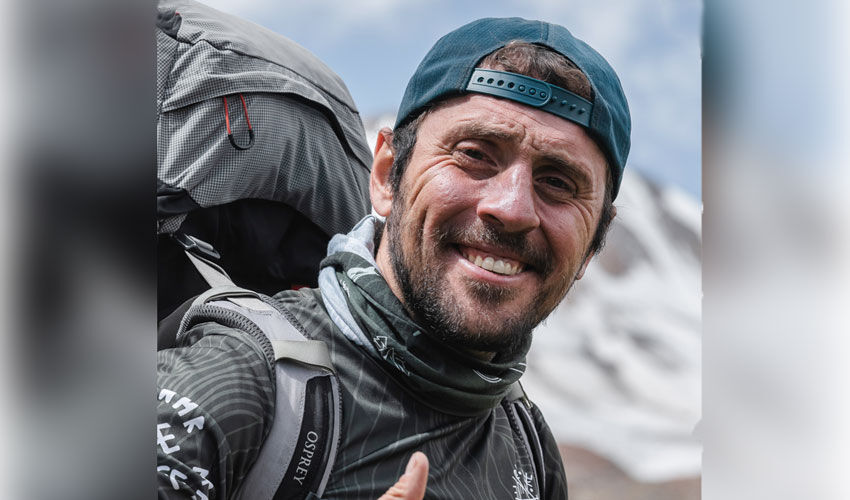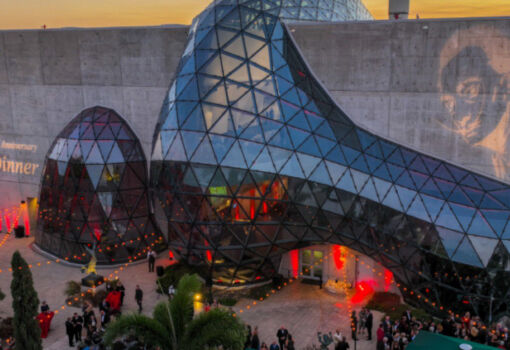
Vladimir Kotlyar
LP: – Vladimir, in your interviews you have told us that you have worked in various spheres, having managed to work as a loader, a janitor, a plumber, a salesman, an industrial climber, and even a sailor on a ship…. How did you come to mountain climbing and become a guide? Did working in industrial mountaineering play a role in your choice of your future path?
– I started to go to the mountains even before I got into industrial mountaineering. I became a mountain guide at the moment when I realized that I didn’t want to be torn into two worlds, spending part of my time in the mountains and the other part living an ordinary city life and finding types of income that I don’t like. That’s when I started to form myself as a mountain guide.
LP: – Who mentored you at the first time when youwere learning mountaineering? Was there any desire to quit at that time?
– The story began in 2006, when I started attending the mountaineering section in Tikhoretsk. Then I moved to Krasnodar, where I participated in mountaineering camps. I continued mountaineering for part of my military service, and after the service I started going to various training camps without belonging to any club.
One of the most important mentors in mountaineering for me was Vladimir Kondrashov from Chelyabinsk. He is a master of sports in mountaineering and a very strong technician. His contribution as a coach was very important for my professional development in mountaineering.
LP: – How vivid an impression was made on you by the first “taken“ peak? Was there any fear before climbing it?
– My first “taken” peak was Mount Fisht in Adygea. It made a huge impression on me, then I fell in love with the world of mountains. There was no fear. Before every ascent, I feel a certain excitement, a slight chill. I even like this feeling a bit!
LP: – When did your hobby turn into a profession?
– In 2010, after four years, I came to the conclusion that I wanted to become a guide. Then I thought about the fact that I should get a job in the mountains. I wanted to spend more time where I felt really good. So I went to the Elbrus Mountains in the Caucasus, where I began to shape myself professionally.
LP: – Help in climbing is impossible without psychological support… How do you manage to motivate people to keep climbing if they can’t?
– Always in different ways, there is no single algorithm of actions. To a large extent it happens on the level of feelings and intuition, not on the basis of any lists or recommendations on how to communicate with people. One person needs to be encouraged, another needs a bit of pressure.
LP: – During the meeting you told us that you try to distance yourself from business as much as possible. Who is directly involved in the affairs of your company “Kotlyar Adventure Clan“?
– LP: Yeah, I’m not really close to all of that. If it would be possible to travel the world without making money, I would do it with great pleasure (smiles). Everything that concerns business, working with money, documentation, I delegated to my wife Anastasia. To be honest, I don’t even know the cost of our programs, what the margin is, what the income from them is. I try to abstract myself from that. My business is to go to the mountains!
LP: – On average, what kind of budget should a person who intends to fulfill his dream and conquer Everest start from?
– If a person has all the necessary equipment and has enough altitude experience, with training and preparation programs under his belt, the net cost of an expedition to Everest with a Russian-speaking or English-speaking guide-manager starts from $70 thousand.
The cost can go up to $100 thousand with a little – it all depends on the format, the level of service, the company and the guide. There are American companies, the cost of their services is higher due to the fact that the salary level of their specialists is higher. An expedition with Russian guides will probably cost less.
LP: – What qualities should a person who wants to become a mountaineer possess? One love for the mountains is probably not enough, is it?
– Although I do not regard mountaineering as a sport, it is a type of physical activity close to sport. Such physical qualities as endurance, strength, agility, coordination of movements are important to some extent. Psychological qualities are also very important, first of all, stress resistance. Intellectual qualities are equally important. As my mentors used to say, “mountaineering is not chess, you have to think here”.
Because mountaineering is a technical sport, the ability to work with equipment is very important. It is also important to know how to pull out a teammate who has fallen through a crack, how to tie a stretcher from improvised materials or how to organize rescue work on a rock wall with the efforts of a small group. Mountaineering requires many different skills that are not useful in other sports.
LP: – Many people know the phrase “There can be only mountains better than mountains you have never been to“ from the work of Vladimir Vysotsky. Can every mountain climber conquer any peak he chooses as his next goal?
– If there are no health contraindications and if there is a certain purposefulness, as well as the ability to find the right approach to training, then, of course, you can conquer any peak. It is necessary to improve your technical skills, your physical condition and prepare for the routes according to all parameters.
LP: – How important is the choice of equipment for climbing? Can an unsuccessful choice of equipment affect the achievement of the goal?
– The choice of equipment is very important. If you skimp on it or choose it poorly, it can lead to frostbite or more dire consequences. But it is not the equipment that determines the result, but the person wearing it. It is possible to buy expensive equipment, but be physically unprepared for the mountain, and it is a greater misfortune than if you are physically and psychologically prepared, but with inexpensive or insufficient quality equipment.
LP: – There are many mountain peaks in the world that climbers want to conquer: Himalayas, Andes, Kilimanjaro, Mont Blanc, Elbrus, Kosciuszko, etc. In your opinion, does every “self-respecting mountaineer“really need to climb each of these peaks?
– It is not necessary to climb the famous mountains. There are many peaks that few people know about, but they are difficult and very respected in the professional environment. Those who are not connected with mountaineering may not know Pobeda Peak (Tien Shan, Kyrgyzstan), but those who have climbed this peak are considered very cool in our “party”. It is the same with Mount Ushba (Caucasus) or Odessa Peak (Kyrgyzstan). There is no such list of peaks that climbers should conquer at all costs.
LP: – Entrepreneur, one of the organizers of today’s meeting Mircea Baciu became the first Moldovan citizen to conquer the seven highest peaks in the world. What record are you most proud of?
– I haven’t done such a thing yet!
LP: – What are your impressions of Moldova?
– This is my third time in your country. I like being here very much. “Cozy” is the word that first comes to my mind when I am here.
LP: – Do you want your children to continue your work?
– No. I want my children to be open to the world and honest with themselves, free to choose whatever they want to do, whatever way of life, whatever way of looking at things, whatever way of thinking.
LP: – What advice would you like to give to beginner climbers? What would you like to warn them against?
– My motto is “Dream boldly, go for your dream boldly!”. I advise you to start by visiting mountaineering clubs, sections and participating in training camps. If the desire to go to the mountains is strong, it is necessary to learn how to do it correctly and as safely as possible. Although the word “safety” is not applicable to the mountains, here, in my opinion, we should talk about minimizing risks. Recently I see a tendency that many young people who do not want to learn mountaineering go to the mountains, bravado about it and expose themselves to completely unjustified risks. Tragedies occur on simple routes, even though they cannot be there in principle.
I remember myself at the age of 16-17, when I was looking for mentors and even went to another city 150 kilometers away to train once a week in the mountaineering section. I didn’t go to discos, I didn’t have any phones, watches or fancy sneakers, I spent my money on mountaineering camps and training.

